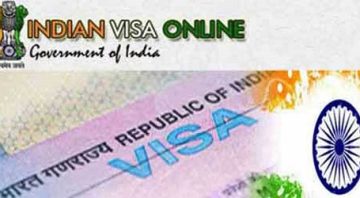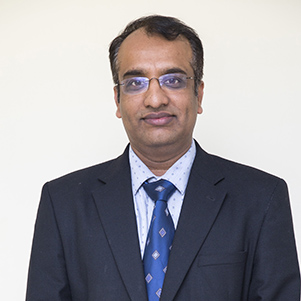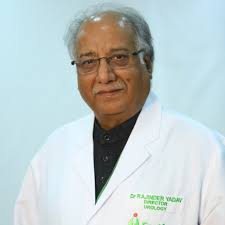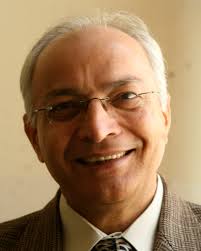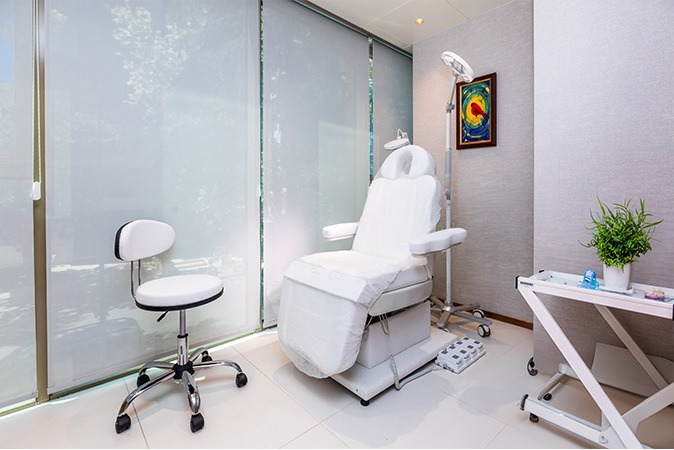Why is the Kidney considered one of the important internal organs of our body?
The kidneys are a part of the excretory system in our body. They filter waste from your blood and remove it from the body through urine. When the kidneys do not function properly, all the wastes remain in your blood and you get sick.
When a person loses 90% of its kidney function, it can be considered an end-stage renal disease.
Kidney Transplant substitutes in India?
● Haemodialysis- it mimics the function of filtering waste products from blood mechanically. Mostly known as ‘dialysis’ among common people.
● Kidney transplantation- in this surgical procedure, a healthy kidney from a donor can be transplanted into the recipient’s body to increase the overall longevity of a dying patient. It is a one-time surgical procedure that can eliminate the continuous dependence on dialysis and patients can live freely without any unpleasant experience of undergoing dialysis regularly.
Dialysis v/s Kidney Transplant?
A Kidney Transplant is often considered a superior option to dialysis. While undergoing dialysis, a person with chronic renal failure can feel excessive fatigue, breathlessness, tiredness, and become anemic.
Low cost Kidney Transplant in India
Low cost Kidney transplant in Bangalore 11,857 USD.
Low cost Kidney transplant in Mumbai 12,657 USD.
Low cost Kidney transplant in New Delhi 13,400 USD.
Low cost Kidney transplant in Hyderabad 12,629 USD.
Low cost Kidney transplant in Chennai 12,886 USD.
Low cost Kidney transplant in Kolkata 14,429 USD.
Low cost Kidney transplant in Ahmedabad 12,886 USD.
Low cost Kidney transplant in Kochi 14,429 USD.
Kidney donors types for Renal Transplantation in India?
Kidneys can be collected from a live person as well as from a deceased or a dead person. If it is taken from a dead person, the procedure is called cadaveric renal transplantation.
The donors can be
● Related live donor- when a kidney is taken from a first-degree relative such as brother, sister, parents, and children. This is possible because most people have two kidneys and can live in good health with one. In most cases, a close relative is preferred as the tissue type and blood group both are likely to have a good match.
● Unrelated living donor- in this case, a kidney is taken from a person who is not connected to the patient and a complete stranger to the recipient.
● Deceased patient- here kidney is collected from a dead person. Here the donors are mostly victims of road accidents, brain tumor, or brain hemorrhage who have been declared as brain dead by the hospital authority.
Who is a good candidate for kidney transplant surgery?
● A person who has End-stage Renal Disease, but should be overall healthy enough for undergoing the complete surgical procedure without any complications.
● Who is a non-smoker and non-alcoholic, as smoking can affect the recovery process and can increase postoperative complications.
● A person who is free from any other systemic diseases like liver disease, diabetes, high blood pressure, or vasculitis.
● And those who can continue the post-surgical medications lifelong without fail and can follow all the instructions mentioned by the doctor.
Precautions before undergoing a kidney transplant surgery in India?
● Consult all your queries related to the procedure with your surgeons and clear your doubts.
● Make sure you inform all your past and present medical history to your doctor.
● If you are prone to some allergic reactions or you are taking any herbal supplements, you need to mention that too.
● If you are under any medications especially on blood thinners like aspirin, you should inform your doc and stop or adjust the dosage of those medications before surgery according to your physician’s advice.
● If you are anemic, you should start having iron supplements before you go for surgery.
● Women on OCP(Oral contraceptive pill) should stop taking pills before surgery.
After getting confirmation from the lab reports and medical examination that you are undergoing kidney transplantation surgery, your surgeon or medical personnel will guide you and your family about the Dos and Don’ts before surgery.
Compulsory tests before undergoing a kidney transplant in India?
Before this cosmetic surgery, your surgeon will evaluate all the following points
– Complete blood count (CBC)
– Lipid profile(cholesterol test)
– General body weight
– Urine test
– MRI scan
Hence, you should be ready to undergo a lot of tests.
Diseases which can lead to end-stage renal failure and need kidney transplantation?
● Type 2 diabetes
● High blood pressure
● Chronic kidney disease
● Glomerulonephritis
● An inborn or genetic defect in the urinary tract.
Risks of kidney transplantation surgery in India?
- Allergic reactions to the anesthetic solution.
- Infection
- Ureter blockage by blood clot.
- Transplant rejection by the recipient’s body
- Sudden kidney failure even after successful transplantation.
- Bleeding or hemorrhage
For how much time do you have to take medications?
After successful kidney transplantation, you have to be under anti-rejection or immunosuppressive medications for lifelong.
Will there be any side effects of these prolonged medications?
● Weight gain hair loss
● Acne
● Skin infections
● Skin cancer
● Lymphoma
● Sudden weight gain
● Bone thinning
● hypertension
How is Kidney Transplant surgery done in India?
Before the transplantation surgery, a team of surgeons and medical personnel will monitor your oxygen saturation, cardiac output, blood pressure, central venous pressure(CVP) and if everything remains within normal range then only your surgeon will go for further procedure.
● The incision is made at the lower portion of the abdomen.
● The new kidney’s blood vessels are connected to the blood vessels of the lower portion of the abdomen i.e. the area above your leg.
● New vascular connections should be established from the new kidney to the urinary bladder.
● After surgery the patient has to stay in the hospital for further evaluation before getting discharged.
Duration of patient stay in the hospital after the surgery?
This depends on the type of anesthesia the patient has undergone. In kidney transplant patients, as the procedure has been done under general anesthesia, the patient might have to stay overnight for 3-5 days. After successful transplantation, your medical personnel will evaluate all the tests along with the kidney function during this time. Make sure that someone should be there to accompany the patient after getting discharged from the hospital.
Kidney Transplant Recovery to start their regular activities?
Within 2 weeks patients can resume their daily lifestyle. That’s why patients are advised to take 2-3 weeks off from their job and take an ample amount of rest. This will help in quick recovery but any kind of strenuous activity or vigorous exercise should not be done without medical supervision.
How much time will the kidney transplant procedure take?
It will take almost 2-3 hours to perform the complete procedure.
What are the FAQs about after kidney transplantation surgery?
● What are all the medications you have to take?
● Will there be any follow-up visits?
● When can you resume your work and regular lifestyle?
● When can you start doing exercises?
● How to do the postoperative wound management and when the stitches will be
removed?
What are the diet and instructions to follow after surgery?
You need to have
● Low fat, low salt diet
● 5 servings of food along with fresh fruits and vegetables
● Stay hydrated all the time. Increase water and fluid intake specifically just after the surgery.
● Take calcium and phosphorus enriched food like dairy products.
● Avoid fruits like grapes as they can interfere with the actions of anti-rejection medications.
● Eat lean meat, fish
● Reduce eating outside as can make yourself prone to infection
● Be regular with your medications.
● Keep your blood pressure, diabetes always in check.
What is the life expectancy after undergoing successful kidney transplant surgery?
For the people of the age group 40-50 years, you can expect longevity of at least 20-22
years.
For the people of the age group 60 years, the longevity of 11 years can be expected.
What are the instructions you need to follow a day before surgery?
● Do not take any food or liquid 6 hours before surgery
● Avoid heavy meals for at least one day prior to the surgery.
FAQs you should ask your surgeon about the kidney transplant procedure?
● What is the success rate of kidney transplant surgeries done by your surgeon?
● How is it possible for a deceased person’s kidney to become functional after the surgery?
● Will the new kidney start acting right after transplantation?
● What will happen if my body rejects the new kidney?
What to do if your body rejects the new kidney?
You will be under immunosuppressants after surgery. Even after that, if your body rejects, it will happen within the first 6 months only.
You might experience the following symptoms
● Reduced urine output
● Tiredness
● Fatigue
● Flu-like symptoms, if you are going to face organ rejection. You should contact your surgeon immediately if you are going through these symptoms.
Deceased donor’s kidney transplant v/s Living donor’s kidney transplant
A healthy kidney from a living person that is functioning properly can easily get accepted by your body. As they remain outside the recipient’s body for a lesser amount of time, they can function well and perform better than the kidney taken from a deceased person.
How to choose Best kidney transplant Surgeon in India?
● You can go through the reviews of those who have already been through kidney transplant procedures in multiple medical forums and if you are worried about some negative review, you can always consult with your doctor about the matter.
● Look for the experience of general surgeons and positive patient stories.
● You can also look for the success rate of kidney transplantation surgery done by your surgeon.
Who can perform kidney transplants in India?
Well-experienced and board-certified general surgeons and nephrologists, urologists can perform the procedure. And make sure to check the accreditation of the hospital from where you are getting your kidney transplantation surgery done.
Why should you go for kidney transplant surgery in India?
Along with the high-quality lifestyle here in Bangalore, you will get well-experienced and skilled surgeons who are comfortable with the best and latest available technology. You will get personalized care from trained medical personnel. Hence it ensures shorter hospital stays and quicker recovery.
Any botched-up case of kidney transplant surgery in India?
To date no such cases have been reported as here in Bangalore, surgeons are way more skilled and experienced. But to avoid these kinds of cases, you should choose your surgeon carefully.
Do you feel that the cost is way out of your budget? Are you looking for Kidney transplant insurance in India?
In India, the majority of health insurance coverage is for serious ailments. That’s why the chances of getting coverage for the procedure are higher. You can consult with your financial advisor related to the matter and explore the possibilities along with your surgeon. Though nowadays EMI facilities are available in some financial agencies.
Even after that, you are feeling it’s difficult for you to avail yourself of the insurance, you can always ask your doctor to write one letter to your insurer describing the importance of this surgery on your health. If your insurance company provides coverage also, it will bear a partial amount of its budget. So make sure you read the details and go for it.
Even if your insurance company bears it now, you might have to pay a higher premium
for later.
Kidney Transplant Surgery Conclusion
You should always choose a kidney transplant surgical procedure over dialysis and you should go for it whenever you will find a living donor. You can choose this surgery before undergoing dialysis also. If you are still confused about what to choose and what not ,please feel free to contact us. We are always there to help you out!!
